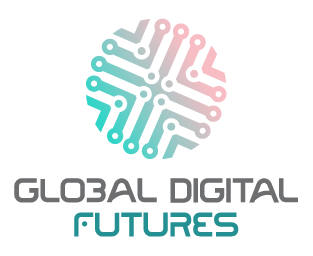Episode 17
The Politics of Language Online
This week, we are speaking to Marie Thaut, a student at SOAS. A conversation we had at one of the Coding Club workshops presented the perfect opportunity to discuss The Politics of Language Online. There are more than 7,000 languages on Earth, yet half of the world’s 7.6 billion people speak just 24 of them, and 95 percent speak just 400 of them. That leaves five percent of the global population spread across 6,600 different languages, hundreds of them now spoken by less than ten people.
Marie is doing an MA in Language Documentation and Description and has completed a BA in Language Sciences at the Université Lumière Lyon II and Bachelor degrees in South Asian Studies & Urdu, and Teaching French as a Foreign Language, both at INALCO, the National Institute of Oriental Languages and Civilisations in France. Marie is also the Project Manager of the Sylheti Project at SOAS University of London, which started as a group of students interested in documenting the Sylheti language as spoken by the various generations of members of a local community in the London Borough of Camden.
Or listen on Apple Podcasts.
Resources:
Discover the SOAS Sylheti Project on their website: https://sylhetiproject.wordpress.com
Marie was featured in the BBC Asian Network’s feature on Sylheti language in London. Watch the video British Bengalis Saving Sylheti.
Discover Storyweaver, an open-source platform that encourages the publishing or translation of children’s stories in any language!
Learn more about the SOAS Endangered Languages Archive on their blog.
Visit the site of the Living Tongues Institute for Endangered Languages, a leading research organization dedicated to documenting endangered languages.
Visit the Wikitongues site. They are a global volunteer movement expanding access to language revitalization online.
Learn more about Language on the Move, a peer-reviewed sociolinguistics research site devoted to multilingualism, language learning, and intercultural communication.
Join a worldwide collaboration to strengthen endangered languages through the Endangered Languages Project online catalogue.
Watch the presentation Adding Languages On Computers and Mobile Devices by Craig Cummings, the Unicode Technical Committee Vice Chair.
Learn more about Unicode and submitting new languages, symbols, numbers and other data for unregistered locales on the Common Locale Data Repository (CLDR) website.
Learn more about the politics of language in the Economist article Classifying languages is about politics as much as linguistics.
Read the United Nations Declaration of the Rights of Indigenous People, particularly Article 13, which states that indigenous people have the right to revitalize, use, develop and transmit to future generations their histories, languages, oral traditions, philosophies, writing systems and literatures, and Article 14 on education.
On the dangers of failing to safeguard dying languages, read Can We Stop a ‘Mass Extinction’ of Human Languages?
For more on the disparities of spoken languages vs. those that are dominant online, read How Languages Used Online Compare To Real Life [Infographic].
Read how The internet is helping to revive minority languages, for more on the importance of safeguarding languages.
Learn more about Next Billion Users the Google initiative to build new products and features for their next billion users.
Learn why learning languages is so important in the article Sorry STEM, Google just made the case for more foreign language education.
